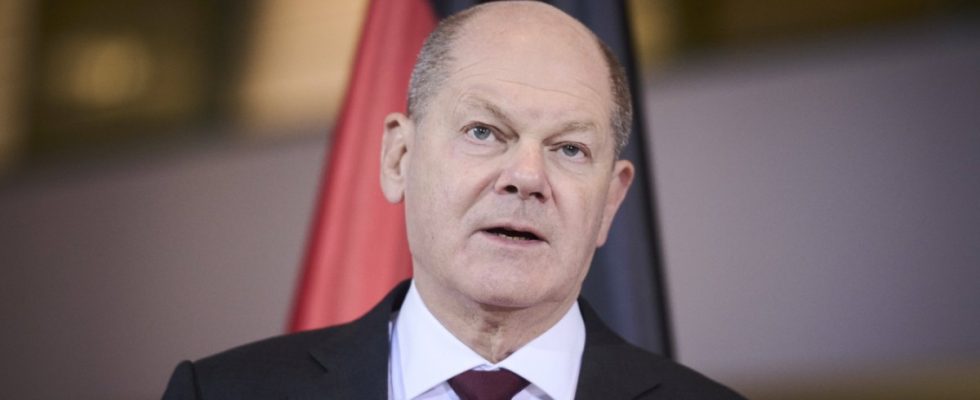Despite the serious defeat before the Federal Constitutional Court, Chancellor Olaf Scholz (SPD) defended the outsourcing of certain expenses to special funds and refused to apologize for the damage caused. “There is no reason for us to go into sackcloth and ashes,” said Scholz, according to information from the South German newspaper in a virtual special meeting of the SPD parliamentary group that was scheduled at short notice on Wednesday evening. This means that a lot of resources have been mobilized to respond to the various crises.
The deputy SPD parliamentary group leader Achim Post demanded at the meeting from Chancellor Scholz, on behalf of many other MPs, that the debt brake should be suspended for the years 2023 and 2024 and that he would have to negotiate this primarily with the FDP and its Finance Minister Christian Lindner.
According to participants, SPD parliamentary group leader Rolf Mützenich said that he was also in talks with Union parliamentary group leader Friedrich Merz (CDU) for a fundamental solution. Scholz admitted that citizens wanted clarity quickly. “We now have to explain again what we want to do next.” However, it is important to take the necessary time and examine it carefully so that nothing can be complained about. Because of the enormous budget problems resulting from the Federal Constitutional Court’s ruling, the traffic light coalition is considering declaring an emergency situation for the current year in order to be able to subsequently suspend the debt brake.
If possible, in coordination with the Union
However, various variants are currently being examined and the aim is to first seek close coordination with the Union in order to achieve a constitutional solution. The trigger is the ruling of the Federal Constitutional Court on November 15th on the previous special funds with which the coalition of SPD, Greens and FDP tried to circumvent the debt brake. The court had declared the reallocation of 60 billion euros of unused Corona aid money to a climate and transformation fund (KTF) to be unconstitutional. As a result, the Ministry of Finance also stopped further disbursements via the Economic Stabilization Fund (WSF). It was once filled with 200 billion euros to set up the electricity and gas price brakes, but is now no longer available to cushion high energy prices this winter.
Because of the ruling, further financial commitments from the current budget, including for new Bundeswehr procurement projects, have also been stopped for the time being. The finalization and adoption of the 2024 federal budget, which was actually planned for this Thursday in the Budget Committee and then next week in the Bundestag, has also been canceled. This means that an emergency budget could initially be threatened from January if it is not passed by the end of the year. Larger new investments would then not be possible for the time being. However, Scholz made it clear that this should be avoided.
Borrowing far above the permissible limit
Several experts explained in statements to the Budget Committee that the current 2023 budget, measured against the requirements of the Constitutional Court, violated the debt brake. The reason: The government used funds from the KTF and WSF in the current year, but did not count the loans used towards the debt brake this year – but booked everything in 2022, when the debt brake was due to the general crisis situation as a result of the corona pandemic was still suspended.
The Constitutional Court also rejected this booking technique. However, if the loans have to be recorded in 2023, the borrowing would be well above the permitted limit. In order to cure this violation, an emergency situation could be subsequently declared for 2023 in view of the high energy prices and other consequences of the Russian war in Ukraine. Individual MPs in the SPD have criticized the fact that Scholz has not yet given a major speech to citizens on the budget crisis. Large industrial companies in particular are already warning of an exodus, as steel and chemical plants, for example, cannot make investment decisions due to the uncertainties surrounding previously planned funding programs. The establishment of chip factories is currently in jeopardy.

